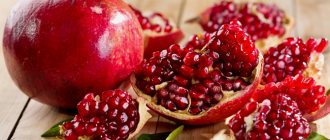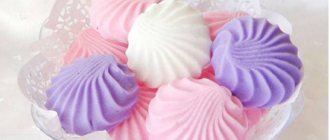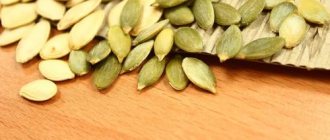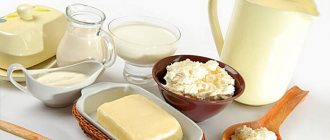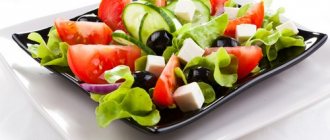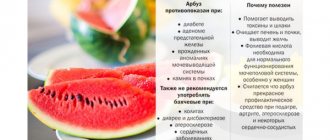A diet for pancreatitis includes the correct selection of not only food, but also drinks: in case of inflammation of the pancreas, you have to give up many of the usual drinks, at least for the period of exacerbation. So, coffee and cocoa are excluded from the diet; you cannot drink strong tea, milk, or kvass. But what about juices?
On the one hand, juices are an excellent source of vitamins and minerals; They are low in calories and are easily digestible. Unlike whole vegetables, fruits and berries, their juices do not contain fiber - one of the most dangerous food components for patients with pancreatitis. In addition, certain juices have “individual” beneficial properties, determined by the properties of the fruits (berries, vegetables) from which they are made: carrot juice is good for vision, citrus fruits strengthen the immune system, beet juice cleanses the intestines well, etc.
On the other hand, juices can have adverse effects on the damaged pancreas:
- Juices contain a high concentration of organic acids, which cause irritation of the mucous membranes of the stomach, stimulating gastric and pancreatic secretion.
- Juices are rich in easily digestible carbohydrates; their consumption leads to an increase in blood glucose levels, which means activation of insulin production by the pancreas is required. During acute periods, such loads are generally unacceptable, and even during remission, excess intake of carbohydrates can provoke the development of diabetes mellitus against the background of pancreatitis.
- Another unpleasant feature of juices is that due to the same carbohydrate content, they cause fermentation processes in the intestines, which is accompanied by flatulence and painful abdominal cramps.
- Juices are a highly allergenic product, and the inflamed pancreas becomes extremely sensitive to the effects of potential allergens, even if you have not previously suffered from allergic diseases.
However, juices for pancreatitis can still be consumed if you follow certain rules.
What juices are allowed?
The pancreas is an organ in the digestive system that affects how the body functions. The complete digestion of incoming food depends on it. It produces the necessary enzymes that are involved in the breakdown of fats and proteins. Part of the full treatment of pancreatitis is following a strict diet. It consists of limiting food consumption and including recommended foods in the diet. This also applies to fresh fruit and vegetable drinks.
Question from patients: is it possible to drink juice for pancreatitis, what juice can you drink for pancreatitis, and which should you refuse? For example, a drink made from pomegranate is allowed for consumption by patients with pancreatitis with a complete decrease in inflammation. Since the drink includes a number of organic acids, you should not drink it during the period of exacerbation of the disease or in the chronic form. Additionally, it has tannins that cause stool problems (constipation). During remission, it is allowed to drink fresh pomegranate diluted with purified boiled water.
Before the appointment, make sure that the patient does not have any unpleasant symptoms (nausea, pain, bowel problems). You should not drink fresh pomegranate every day, since in large quantities it can renew the disease.
There are prohibited juices for pancreatitis:
- citrus;
- grape;
- cranberry;
- cherry;
- currant.
Citrus drinks pose a threat to an inflamed pancreas. They provoke irritation of the mucous membrane and the development of inflammation. The disease progresses and symptoms intensify. The rest of the prohibited ones are too aggressive for the inflamed pancreas, even in diluted form.
It is recommended to dilute the permitted ones with fresh purified water. They must be freshly squeezed and natural, then the vitamins and beneficial elements they contain will enter the body in full. It is contraindicated to drink packaged drinks containing preservatives, dyes, flavor enhancers and other harmful substances. Concentrated and too sweet drinks stimulate the production of pancreatic juice in large volumes, which is extremely undesirable at the time of inflammation.
Juices during remission of chronic pancreatitis
After the exacerbation subsides and the disease enters the stage of remission, juices are allowed to be drunk: initially diluted, and if tolerated well, in pure form (in small quantities). But preference should still be given to juices diluted 1:1, prepared without adding sugar. It is allowed to mix juices with each other, add them to yoghurts, whey, kefir.
Remember that some juices (for example, beet juice) should be consumed in very small quantities (within 50 ml). In any case, the amount of fresh juice should not exceed 200 ml (glass) per day.
General recommendations for choosing and preparing juices for patients with pancreatitis:
- In all cases, we are talking only about independently prepared, freshly squeezed juices. You cannot drink “store-bought” juices if you have pancreatitis - they are made from concentrated or frozen juices through subsequent reconstitution, during which water is added to the concentrate, and often also sugar and preservatives. Such drinks are not only of little use in terms of preserving valuable substances, but are also extremely dangerous for the pancreas.
- In most cases, it is better to drink juices immediately after preparation, with the exception of beet juice (to reduce dangerous activity, it is first kept in a cool place for a couple of hours).
- The source fruits, vegetables and berries from which the juice will be squeezed must be completely ripe and not have even the slightest signs of mold, rot or other damage. Immature or low-quality products almost always cause exacerbation of pancreatitis.
- When choosing raw materials for making juices, follow the rules for selecting fruits (berries, vegetables) for pancreatitis and their tolerance in your specific case.
Juices that are most beneficial and low-risk for pancreatitis
- apple (from sweet apples);
- carrot;
- pumpkin;
- apricot;
- peach;
- watermelon;
- melon;
- potato;
- pear;
- from cherries.
These varieties can be consumed undiluted or slightly diluted, and apricot and peach can be drunk with pulp.
Juices that should be consumed with caution
- berry (strawberry, raspberry) - they must be filtered to remove seeds and hard skin;
- tomato;
- plum;
- pineapple;
- citrus fruits (orange, tangerine - only from sweet fruits).
All these juices can be drunk in small quantities, diluted; it is even better to use them only for preparing juice-containing drinks (compotes, non-alcoholic cocktails).
Vegetable juices
The pancreas is treated comprehensively. A special diet, including safe and healthy meals with juices, is the main part of therapy. Vegetable juice for pancreatitis can soothe the irritated pancreatic mucosa, relieve pain and other unpleasant symptoms. The list of healthy vegetables for juices includes potatoes, pumpkin, and tomatoes. Carrot juice has a good healing effect for cholecystitis and pancreatitis.
It is used during a strict diet, it blocks the formation of cholesterol plaques, removes harmful substances, and saturates them with useful ones.
Potato
Potatoes make an excellent and tasty side dish. This vegetable is used to make an effective medicine against pancreatitis - potato squeeze. For these purposes, use high-quality potatoes without damage or eyes. Since potato juice loses its healing properties when exposed to oxygen, drink immediately after squeezing. Regular use of this drug will ensure regeneration in the pancreas and relieve pain.
A drink consisting of two juices: potato and carrot has beneficial properties. It has the best qualities and enhances healing. Both juices are mixed in equal proportions and consumed immediately after preparation.
Beetroot
Take natural freshly squeezed beet juices with caution. Beets have beneficial qualities and a whole range of substances necessary for the body. Drinking drinks made from fresh vegetables is much healthier. But you should not abuse this healing drink; in large quantities it causes diarrhea and severe cramps. It is worth refraining from consuming it from beets in case of acute pancreatitis and during the period of exacerbation of the disease.
Fruits for pancreatitis
Not all fruits and vegetables can be eaten with pancreatitis
The consumption of fruits for pancreatitis is also strictly limited. It is not advisable to eat sour fruits containing coarse fiber, especially during an exacerbation. You can eat fruits only 10 days after the start of remission of pancreatitis. Chronic pancreatitis also does not allow you to abuse fruits; from the list of permitted ones, it is enough to eat one fruit a day. Naturally, the benefits of eating fruits are greatest, because they contain many vitamins and microelements, which are valuable for the pancreas, but the coarse fiber content disrupts its functioning.
The list of allowed fruits includes: strawberries, melon, watermelon, sweet green apples, avocado, pineapple, banana, papaya. You cannot eat mangoes, all types of citrus fruits, cherry plums, sour apples, plums, peaches, and pears. During the period of remission, the consumption of various fruits is allowed, but only heat-treated ones. But you should follow certain rules when eating fruits with pancreatitis:
- Only fruits from the list of permitted fruits are allowed to be eaten, and they must be thoroughly chopped or ground.
- Fruits must be subject to heat treatment (in the oven or steamer) before consumption.
- It is forbidden to eat more than one fruit throughout the day.
Along with the list of permitted and prohibited fruits, you should also know the list of medications that can be taken if you have consumed a prohibited fruit. The question often arises: is it possible to eat bananas and strawberries for inflammation? Most nutritionists are of the opinion that these fruits will not cause harm if they are eaten in small quantities and not during an exacerbation.
Natural juice from strawberries and bananas is considered especially beneficial for the pancreas; it contains many vitamins and tastes good.
Herbal juices
Traditional therapy copes well with many diseases. Herbs are a source of beneficial substances that have a positive effect on the entire body. What herbal juices are taken for pancreatitis and cholecystitis:
The main condition for nutrition during reactive inflammation of the organ and ducts of the pancreas is the complete exclusion of irritants, that is, a diet that is as gentle as possible to the diseased organ.
What juices can you drink for pancreatitis?
In the acute stage - none. For several days (after 2 - 3 days of therapeutic fasting), the only drinks allowed are a decoction of rose hips (no more than 1 liter) and slightly alkaline non-carbonated mineral water.
Vegetable juices - potato, pumpkin, carrot, beetroot, sauerkraut, really help activate enzymes that regenerate cell membranes, but they need to be introduced into the diet with extreme caution (50 ml between meals) and only freshly squeezed. An exception is beetroot juice; it is drunk after exposure for 2 hours so that components harmful to damaged mucous membranes evaporate.
Fruit, fruit, and berry juices (not sour) diluted with water (1:1) can be consumed after the 21st day of the onset of exacerbation of pancreatic disease.
And more about the benefits of natural juices:
Home treatment for remission of pancreatitis
What juices can you drink if you have inflammation of the pancreas after the acute stage has passed? Fresh. In the sense that vegetables and fruits must be freshly grown:
- birch sap - only at the time of collection (March, April), canned - will harm.
- potato - only until November,
- carrot, pumpkin - until the New Year,
- Sauerkraut juice is a special matter; excess acid in it is unacceptable.
When stored for a long time, raw vegetables become harmful to damaged mucous membranes.
As for fruits, also choose seasonal fruits as they ripen, starting with apricots, continuing with peaches, early apples, then late varieties.
Eliminate industrially produced nectars from your diet.
With pancreatitis, you may have to forget about fruits, sour-tasting berries and citrus fruits forever to avoid exacerbation of inflammation.
Healing properties of vegetable juices
Important conditions that must be taken into account when choosing which juice to drink for pancreatitis: you need to drink drinks that do not irritate the mucous membranes, and also have other medicinal properties:
- choleretic,
- antispasmodic,
- detoxification,
- enveloping,
- dietary (in accordance with diet No. 5).
Consultation should be obtained from a doctor, but traditional medicine offers the following rules and a range of medicinal drinks that serve as the prevention of further exacerbations.
Use is only available during remission.
Juices from fresh potatoes and Jerusalem artichoke
They have high anti-inflammatory, antispasmodic, wound-healing abilities. Conditions of use: immediately after squeezing, no more than 4 times a day in portions of 50 - 100 ml on an empty stomach, without salt.
Carrot raw drink
Enriches cells with growth and regeneration vitamins (A, E, K), as well as mineral elements. But it is better to drink it in combination with potato juice or a drop of vegetable oil. The norm is 150 ml per day. During an exacerbation, do not use.
Sauerkraut brine
Removes constipation, swelling, stagnant fluid. Saturates with vitamin C, the main purifier of blood and lymph. Reduces cholesterol, eliminates poisons. The norm is 50 ml portion on an empty stomach in the morning and afternoon.
Pumpkin smoothie
Reduces painful discomfort, destroys focal inflammation, absorbs and removes toxins. Drink 100 ml in the morning, before lunch, before bed.
In conclusion, the following important fact:
N. Walker (America), a famous nutritionist and adherent of vegetable juice therapy, recommended the following vitamin composition for the speedy healing of pancreatic disease: carrots, Brussels sprouts, green beans, pods, lettuce. All components must be ground in equal parts and the healing nectar must be squeezed out. Consume 100 ml every morning for 30 days.
Perhaps you should listen, Norman W. himself lived 99 years and 6 months, strictly following his own theory of healing with raw plant juices and seed extracts. The book contains specific descriptions of recipes for making compositions, and also lists which juices can be drunk for pancreatitis and numerous other diseases.
What juices to drink for pancreatitis
For patients with this diagnosis, a number of restrictions are indicated, starting with the organization of nutrition. Treatment of pancreatitis should be carried out carefully and follow the doctor's recommendations. Some foods, drinks and herbs are contraindicated.
All juices approved for consumption for the pancreatic disease in question should be discussed with your doctor.
- First of all, in case of pancreatic dysfunction, it is recommended to drink exclusively freshly squeezed juices without any additives, impurities and, of course, without sugar.
- the second point that is important to pay attention to: they should not be concentrated.
In this regard, people with pancreatitis are recommended to drink freshly prepared juice only after it is diluted in a 1:1 ratio with water.
What juices are prohibited for the pancreas?
The next key point in the treatment of the pancreas is the negative impact of a group of natural freshly squeezed juices on this organ. The following juices are strictly contraindicated for pancreatitis:
- citric;
- grapefruit;
- currant;
- cranberry;
- grape;
- orange.
Even in a diluted state, they should not be used by people suffering from pancreatitis. Some of these juices have a high level of acid, which does more harm to the pancreas than good.
But in the form of fruits, for example grapes, a patient with pancreatitis can eat, but in limited quantities.
It is also necessary to exclude herbal mixtures that contain choleretic plants, due to the fact that their action can move gallstones or cause hepatic colic.
Note! For pancreatitis, nectars should never be too sweet or sour; dilute the permitted juices one to one with water.
It is extremely important to find out which juices the patient should prefer? After all, before starting treatment, it is necessary to clarify how safe and useful a particular drink is for a given diagnosis.
Juices for acute pancreatitis and exacerbation of chronic
During acute periods of illness, pure juices are not allowed under any circumstances - they are all too acidic and irritate the pancreas, increasing inflammation. But gastroenterologists also advise refraining from drinking juices diluted with water for at least a month after the onset of an attack of pancreatitis.
However, based on diluted juices, you can prepare other drinks - compotes, fruit drinks, jelly. To preserve as many vitamins in the juice as possible, add it to boiling water and turn it off 5-10 seconds after boiling again. Sweeteners are used to sweeten the finished drink if necessary.
Tomato and carrot drink
Tomato juice is not always a favorite. In addition to all the beneficial properties of this drink, it also has negative qualities:
- salt helps in the formation of swelling of the gland and its inflammation;
- organic acids (such as tartaric, citric, succinic and malic) activate the cells of the stomach and pancreas, and the resulting enzymes damage tissue, actively supporting inflammation;
- pulp and dietary fiber increase gas formation and diarrhea.
Using a refreshing drink within reasonable limits has a beneficial effect on the body. Among other juices that can be consumed, carrot juice should be highlighted. True, it is also contraindicated in the acute phase of pancreatitis.
Remember, the healing process will be much more effective if you determine in a timely manner which foods and drinks should be consumed and in what quantities.
To reduce the irritating effect on the gastrointestinal tract and obtain all the necessary vitamins when treating the pancreas, dilute natural juices with warm boiled water.
WHY SHOULD YOU DRINK BIRCH JUICE
People consider birch sap to be a panacea for all ailments. It is recommended to drink about 10 liters of fresh birch sap per season to stay healthy throughout the year. What is the value of this drink?
Birch sap is harvested in early spring; the season lasts from approximately mid-March to mid-April, until the buds open. The exact time depends on the climate zone and specific daily temperatures. In the same area, this time may differ by 2 or even 3 weeks, depending on how early spring is.
Without knowing how to properly extract birch sap, you can destroy the tree, so this process should be treated very carefully. A large tree can produce about 7 liters of juice per day, a young tree – much less. It is better not to take sap from young birch trees - you can damage the tree. After receiving the required amount of juice, the slot is covered with wax, garden varnish, or plugged with moss and clay. Undoubtedly, birch sap is very beneficial for our body. And to understand this in more detail, we invite you to find out why and who should drink it.
What is birch sap rich in?
Birch sap is a whole treasure trove of vitamins and minerals. It contains salts of magnesium, potassium, calcium, silicon, sodium, copper, aluminum, phosphorus, zinc, zirconium. Potassium, sodium and chlorine regulate osmotic pressure and maintain the salt composition of the blood. Calcium is needed for bones and teeth, and potassium is needed for the normal functioning of the nervous system and muscles. Birch sap is also rich in organic acids, tannins, enzymes, phytoncides and saponins.
What are the benefits of birch sap:
Birch sap strengthens the immune system
Birch sap should be consumed to restore the body's strength, this is especially useful after winter, when colds have weakened the immune system. It copes well with spring depression and fatigue, and increases hemoglobin. And the phytoncides contained in it kill bacteria and protect against viral infections. If you drink a glass of juice every day for a month, then no cold or bad mood will spoil the wonderful spring days.
Birch sap - healthy kidneys
Birch sap is extremely useful for kidney diseases, in particular in the treatment of inflammation. It helps disengage kidney stones and remove sand from them. But you need to be careful, drink no more than 2 liters a day, because the stones can begin to move and get stuck in the urinary tract, and this will cause severe pain.
Good skin and healthy hair
Birch sap is very common in cosmetology, as a variety of products for the face and hair are made from it. You just need to wipe your skin with birch sap and it will look healthy and fresh again. This lotion perfectly cleanses and tones, treats acne, and normalizes sebum production. By rubbing the skin with birch sap, you can get rid of age spots. Birch sap is also good for hair. It perfectly fights dandruff and hair loss. You can use birch sap instead of balm and after a few procedures you will notice the result. It also helps speed up hair growth.
Birch sap helps you lose weight
Birch sap will help you lose weight. It improves metabolic processes in the body, removes toxins and has a positive effect on the stomach. Just replace coffee and tea with birch sap, you can combine it with orange or lemon juice. Birch sap is low-calorie - 100 grams contains only 25 calories.
Improves digestion
Biologically active substances and enzymes contained in birch sap improve the functioning of the gastrointestinal tract. Even people suffering from pancreatitis are allowed to drink it. And it will help pregnant women get rid of toxicosis.
Birch sap cleanses the body
Birch sap is able to purify the blood and has a positive effect on the production of red blood cells, removes waste, toxins and other harmful substances.
Healthy heart
Birch sap is good for the cardiovascular system, as it contains calcium and magnesium salts. It strengthens blood vessels, purifies the blood, increases hemoglobin levels, and increases the elasticity of blood vessels. Doctors advise drinking birch sap to prevent atherosclerosis.
Birch sap relieves swelling
Due to the high content of sodium salts, birch sap has a diuretic effect, which is why it is recommended for dropsy and various edemas. Even during pregnancy, to get rid of swelling, you should drink birch sap if you are not allergic to birch pollen.
Healthy teeth
Finnish doctors claim that lollipops and sweet syrups made from birch sap prevent tooth decay. Therefore, for prevention, it is worth drinking birch sap, combining it with rose hips or cranberry juice.
Who should not drink birch sap?
Birch sap should be drunk carefully if you plan to remove kidney stones. And if you are allergic to birch pollen, you should stop drinking the sap.
How to properly extract birch sap
To get birch sap and not kill the tree, you need to follow simple rules.
- Do not choose young birch trees; it is better when the tree is more than 10 years old.
- Holes for juice to flow out must be made with a drill, and in no case with an ax.
- The number of holes should be minimal.
- After collecting the sap, the holes on the bank should be lubricated with garden varnish so that the bark heals faster. If there is no var, regular chewing gum will help!
How to store birch sap
Birch sap quickly begins to ferment. Fresh juice should be stored in the refrigerator for no more than 2 days. And in order to preserve beneficial substances for a whole year, it can be preserved by adding lemon, orange, mint. It can also be used in making cocktails and kvass.
Doctor - hygienist
State Institution "Center for Hygiene and Epidemiology"
Frunzensky district of Minsk"
Gapanovich Valentina
